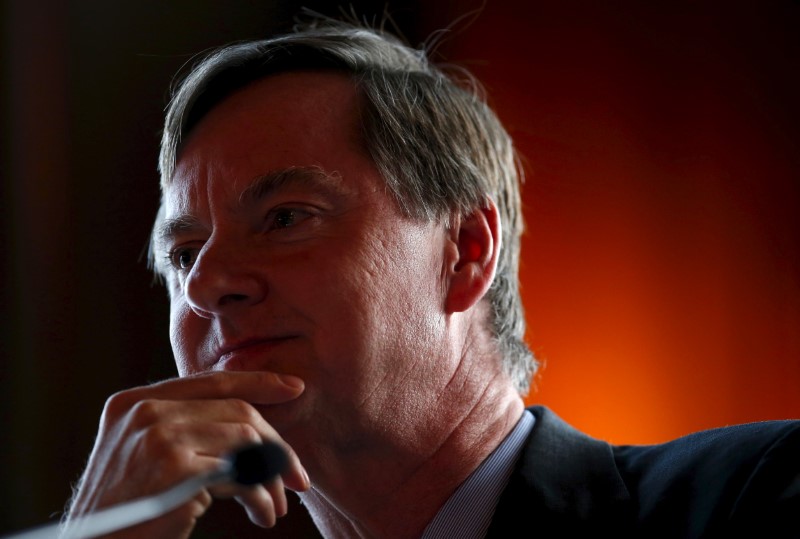By Lindsay Dunsmuir and Rebecca Howard
AUCKLAND (Reuters) - Chicago Federal Reserve Bank President Charles Evans said he would be "fine" with raising U.S. interest rates by year end if U.S. economic data continued to come in firm, though any further moves would need to see inflation accelerating.
"I have a forecast where things continue to improve. I do think there will be a rate increase," Evans told journalists on Wednesday after a speech on the U.S. economy in Auckland, New Zealand.
He added he would be "fine" for rates to increase by year end and said any move would likely come at the December meeting, though he did not rule out the possibility of it happening in November.
Evans emphasized that the timing of the next hike was less important than how tightening was conducted beyond that, and he would want to see inflation actually moving up and unemployment falling further.
"I am less concerned about the timing of the next increase than I am about the path over the next three years," Evans said.
Regarding the impact of the upcoming U.S. election on monetary policy, Evans said "we don't know."
He underscored the Federal Reserve will be paying close attention to the government's stance on fiscal policy.
"What the central bank needs to do is have a view point on whether or not fiscal policy is going to be stimulatory or contractionary on the economy over the next three to five years and then we have to decide if we need to take action to offset its effects on inflation," he said.
Given his worries about persistently low inflation that remains below the Fed's 2 percent target, Evans said he would like to see a change to the Fed's communications when they next raise rates to "indicate that subsequent increases will depend on seeing...changes in inflation indicators."
Among other things, he said he would like communication to be more explicit about what it takes to get a rate change.
The Fed's preferred inflation measure stands at 1.7 percent and has been below the central bank's goal for more than four years.
Evans noted he wants to see solid evidence inflation is moving upwards on a sustained basis and have more confidence that inflation expectations are symmetrically aligned with the Fed's inflation target. A "very shallow" rate path is necessary to help spur that, he said.
The Fed is divided on the timing of another rate increase following an initial liftoff from near zero last December.
Evans, who gains a vote on the rate-setting committee in 2017, is among those policymakers repeatedly warning that rates should not rise fast or far in a low-rate, low-growth global environment that lacks inflationary pressures.
Other policymakers, including three who dissented on the Fed's decision to stand pat at its September meeting in favor of an immediate increase, fear the central bank getting behind the curve on inflation and that low rates could increase financial stability risks.
In his prepared remarks, Evans said his estimate of the so-called natural rate of unemployment is 4.7 percent and he expects the rate to drop to 4.25 percent by the end of 2019.
The current unemployment rate is 4.9 percent.
Underscoring his view that the Fed should run the labor market hot in order to spark higher inflation, Evans added that "undershooting the unemployment goal is a necessary feature of appropriate monetary policy" to raise inflation back to 2 percent "in a reasonably timely and sustainable fashion."
There are two more meetings this year on Nov. 1-2 and Dec. 13-14. Traders have all but ruled out a move at the November meeting given its proximity to the U.S. election. They are currently pricing in a 63 percent probability of a rate hike in December, according to data from CME Group (NASDAQ:CME).
